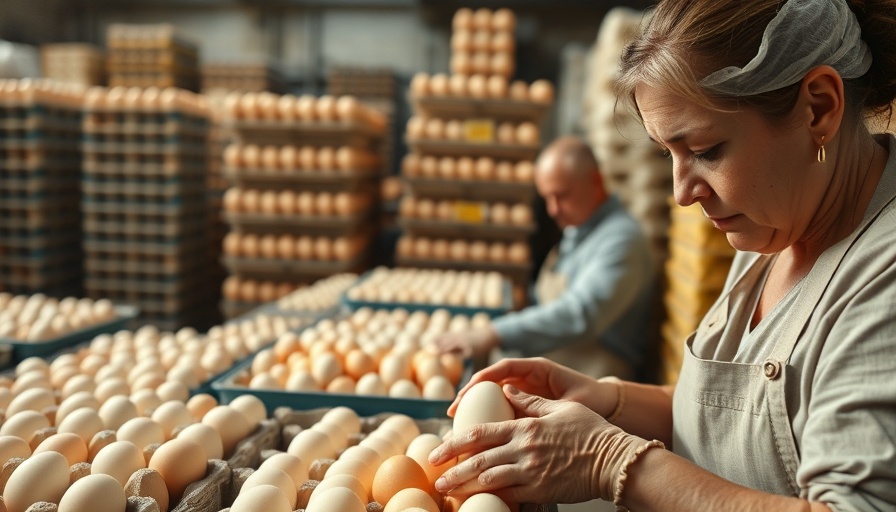
The Rising Crisis of Avian Flu and Its Impact on Egg Farmers
The landscape of egg production in the U.S. is becoming increasingly perilous as egg farmers confront a relentless enemy: highly pathogenic avian influenza (HPAI), specifically the strain H5N1. With millions of birds being culled daily, the toll this outbreak takes extends beyond poultry and threatens human health, raising alarm bells among infectious disease experts and egg producers alike.
Stressing the Human Element in Agriculture
The emotional impact on farmers can be overwhelming. The CEO of Herbruck’s Poultry Ranch, Greg Herbruck, shared harrowing accounts of the mental strain on his team, who have been battling to contain the crisis. Facing the end of 6.5 million hens, employees are forced to deal not only with financial losses but also with emotional fatigue from seeing their livestock culled in alarming numbers. The experience has affected sleep and mental well-being, emphasizing the intersection of health and mental health within agricultural challenges.
Understanding the Biosecurity Measures
In response to the outbreak, egg producers have ramped up biosecurity measures, an effort that often necessitates considerable financial investments. Workers now undergo rigorous cleaning protocols that include showering in and out of facilities to prevent further transmission of the virus. Yet, despite these measures, the ongoing outbreak continues to escalate, indicating that current strategies may not be sufficient. The growing urgency for alternative prevention methods underscores the limitations of existing biosecurity protocols as the virus adapts.
Global Implications and Future Predictions
This crisis isn't just a local problem—it's a global one. H5N1 has been shown to spill over from birds to mammals, heightening fears of mutating strains capable of affecting human health. With 66 of the 67 recent human cases traced back to this outbreak, the intersection of poultry health with broader public health risks cannot be overlooked. Experts are pushing for innovative and sustainable strategies that not only address immediate concerns but also consider long-term implications for both animal and human health.
Concluding Thoughts on Agriculture, Health, and Innovation
The ongoing battle against the bird flu crisis faced by egg farmers is a sobering reminder of the fragility of our agricultural systems and the need for robust preventive measures. Addressing these issues requires a multidisciplinary approach that encompasses technological innovation, better biosecurity protocols, and a shared understanding of health as a holistic concept that connects animal welfare with public health.
 Add Row
Add Row  Add
Add 




 Add Row
Add Row  Add
Add 



Write A Comment